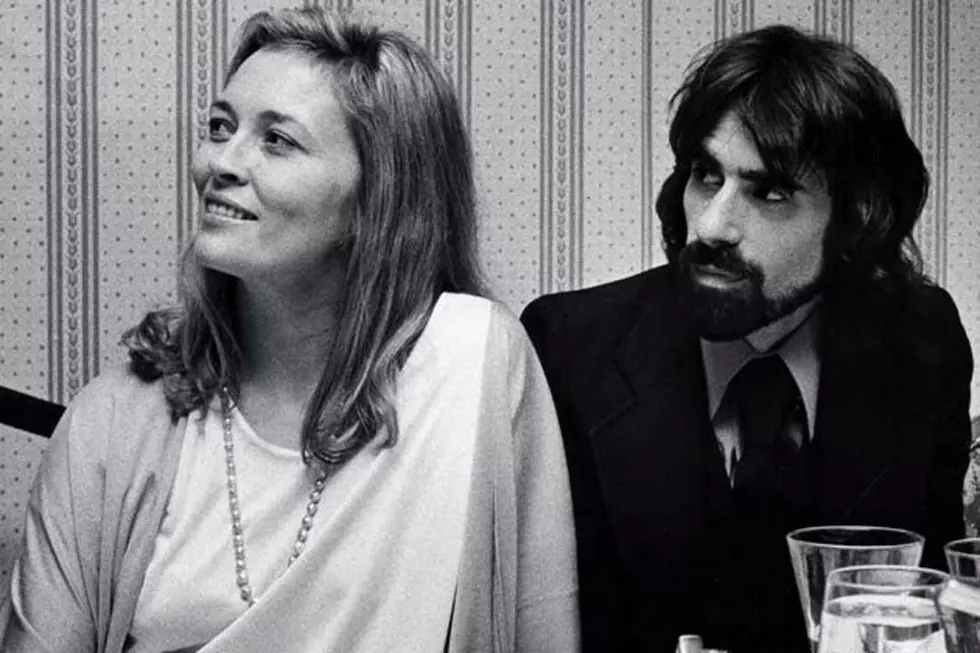20 Years Ago: Peter Wolf Returns With a New Direction on ‘Long Line’
Peter Wolf scored a handful of solo hits after leaving the J. Geils Band, but he went silent for the first half of the '90s. When he returned with his fourth solo album, 1996's Long Line, his music had taken a more introspective turn.
"At one point I realized it's silly to apologize for how long I've been on this earth. Rather than look at it in the negative I look at it as a positive — surviving. A lot of guys better than me dropped out of the race a long time ago," Wolf told the Associated Press. "If I really start to think about how long it's been, I might get a little tired."
Arriving on May 14, 1996, Long Line snapped a six-year drought between solo projects for Wolf, who'd last been heard from with 1990's Up to No Good. And unlike that effort — as well as, to a certain extent, much of his previous output — the new LP presented a reflective side of his personality that hadn't often been allowed to shine through the carnival barker-style showmanship that defined his early public image. As Wolf admitted after the album came out, the evolution heard in Long Line was a byproduct of him finding himself as a solo artist after spending so many years in a band.
"Long Line's a lot more personal than my other solo records," Wolf pointed out in a 1997 interview. "I’m trying to dig a lot deeper emotionally than I have in the past. There’s still the woofa-goofa-mamma-toofa-loverboy-with-the-green-teeth thing, but there’s also a more retrospective, analytical aspect to the performances and in the approach I used for writing the songs."
Wolf's digging didn't solely account for the long layoff between projects, however. Signing with MCA for Up to No Good based on his relationship with manager Irving Azoff, he found himself cut adrift after Azoff left the company — the age-old problem of ending up on a label after the guy who'd brought him on board was no longer in the building. Aside from the drop in label support an artist can generally expect in that situation, Wolf had bigger issues with MCA's post-Azoff regime.
"It took a while to get through what — and I'm being polite here — were some major philosophical differences," Wolf told Billboard regarding his tenure at MCA. "Between the contractual morass and other things, it was a major scrambled-egg time in my life."
It all added up to a set of songs that, while certainly more pensive than the party anthems and blues shouters of Wolf's past, benefited from the hard-won wisdom he'd come by in the intervening years. Self-penning three of the record's 12 tracks and co-writing the others with an array of collaborators that included Aimee Mann and Oscar winner Will Jennings, he showcased an earthier sound than he'd used on his other solo efforts — one that leaned heavier on guitars than keyboards, featured live drums instead of programming, and made a little room for his his harmonica skills.
In a number of ways, Long Line proved Wolf's most satisfying solo release to date. Yet frustratingly, between his long layoff and simply aging out of the Top 40, the record was destined to miss connecting with the mainstream audience that had supported him so readily after he left the J. Geils Band. Continuing the sales slide of his previous two LPs, Long Line failed to chart — signaling that, just as he was truly finding his groove as a solo artist, Wolf had moved to the commercial margins.
Yet after laboring for decades to score a breakthrough with the J. Geils Band — and then slugging it out on the label front as a solo act — Wolf had learned there were more important things than platinum sales. Recounting a backstage chat with Bruce Springsteen about how the industry had changed, he summed up his motivation for forging ahead as a recording artist.
"Bruce said to me, ‘Pete, the only thing we can do is do what we do and try to turn on audiences the grass roots way and just keep on chugging,’" recalled Wolf. "It’s funny to hear that from a guy who’s coming from stadiums, but I’ve come out of arenas, too — so I guess in the end it’s really all just like what John Lee Hooker used to say: ‘If it’s in you, it’s gotta come out.' At least that’s what I feel about myself these days."
The Top 100 Albums of the '80s
More From Ultimate Classic Rock









